This article originally appeared on Automoblog, the sister publication of AutoVision News. It has been republished with permission.
Earlier this year, I was invited to the virtual HARMAN Explore 2021 event. I initially recognized HARMAN from the audio world and not the auto world. For example, HARMAN’s audio portfolio includes storied brands like Bang & Olufsen, JBL, Infinity, and Mark Levinson. Being a musician’s son and a former radio disc jockey, I have known and enjoyed HARMAN equipment for a long time.
What I didn’t realize is how active HARMAN is in the automotive industry. Among my first realizations was learning about how the company is developing new V2X technology to ensure pedestrian safety in the cities of tomorrow. And as part of the HARMAN Explore 2021 event, I saw new and ambitious plans for how future vehicles will connect people to the world around them.
Experiences Per Mile
Cars of the future are often described in no uncertain terms as our “personal assistants.” These intuitive vehicles can sense your mood and change the inside temperature and ambient lights accordingly; they organize your schedule, remember your grocery list, and even remind you of your anniversary. So why not a car that also doubles as a personal studio for video gaming, podcasting, and live music?
The basis of this is rooted in what HARMAN calls “Experiences per Mile.” That is to say, the way we measure a car’s value, in the future, will go beyond the standard spec sheet. In other words, buyers may start to care less about horsepower, fuel economy, and even brand name. Instead, they will be more concerned with how the technology within their vehicle can help them live a more fulfilled life, hence the term “Experiences per Mile.”
Third Living Spaces
Under the Experiences per Mile umbrella is an evolving thought process that envisions a vehicle as a personal and creative space or studio. Achieving this is open to lengthy discussion as it imagines a vehicle’s interior as a blank canvas. There is likely no single answer as there are many ways creative engineers and designers can leverage new technology to develop a vehicle’s interior into that type of environment. During the Explore event, HARMAN outlined three possible ideas known as “experience concepts,” or “ExP” for short. Those concepts are Gaming Intense Max, Creator Studio, and Drive-Live Concert.
“At HARMAN we believe cars should be for living, not just driving,” explained Christian Sobottka, Executive Vice President & President of HARMAN Automotive. “With the addition of our new HARMAN ExPs, we’re transforming the car into a ‘third space’ that delivers the experiences consumers demand, and delights with meaningful moments of magic.”
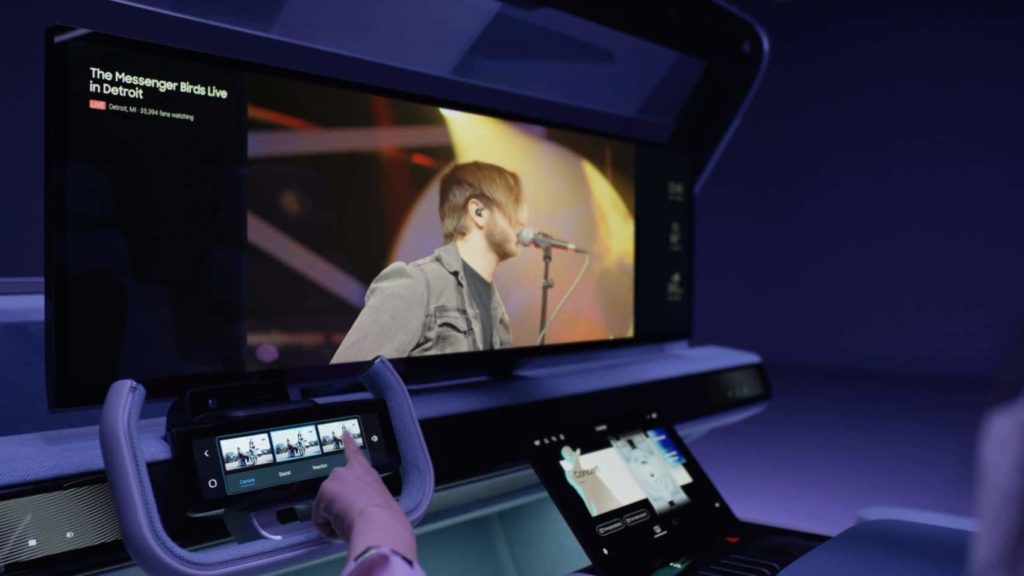
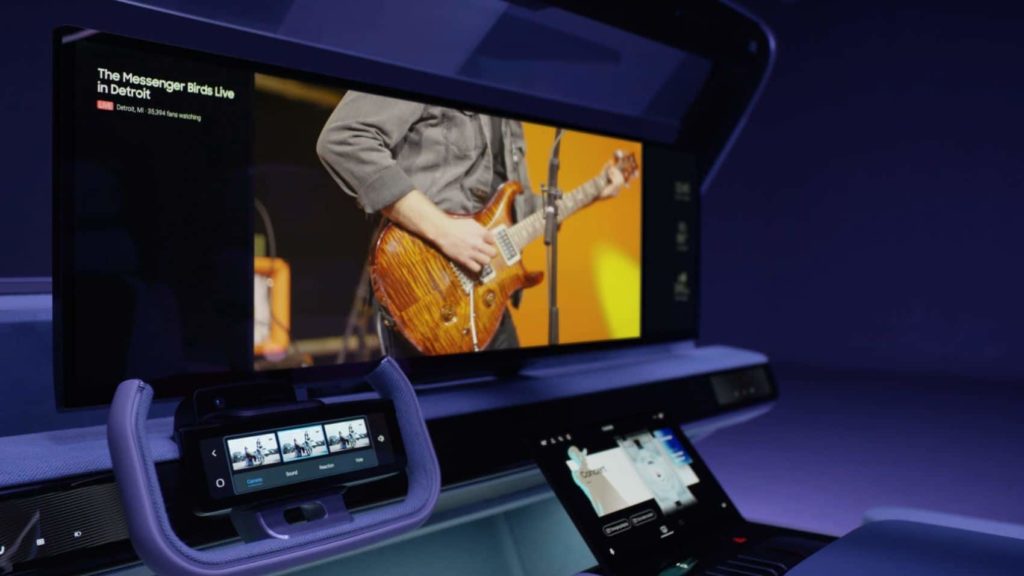
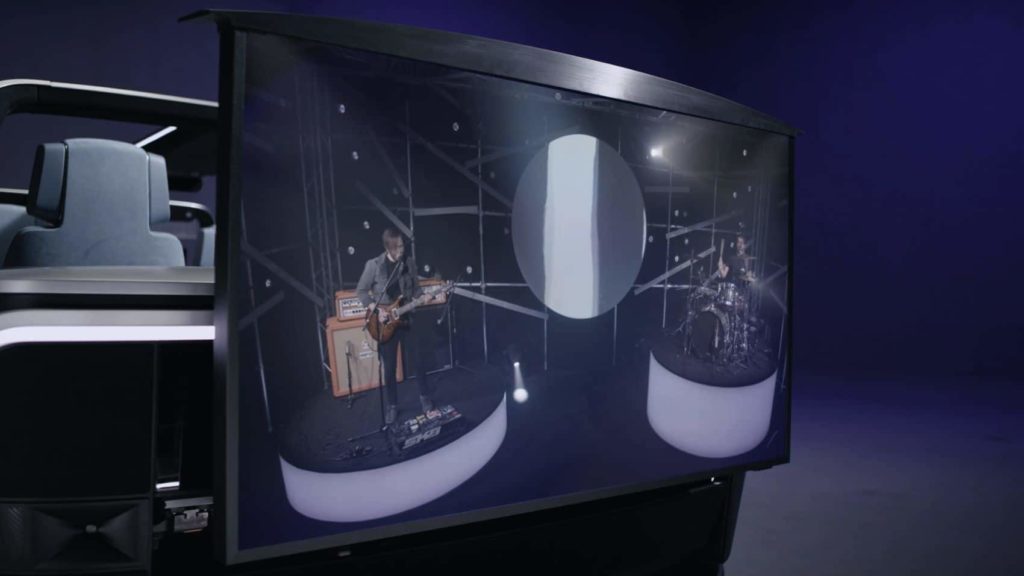
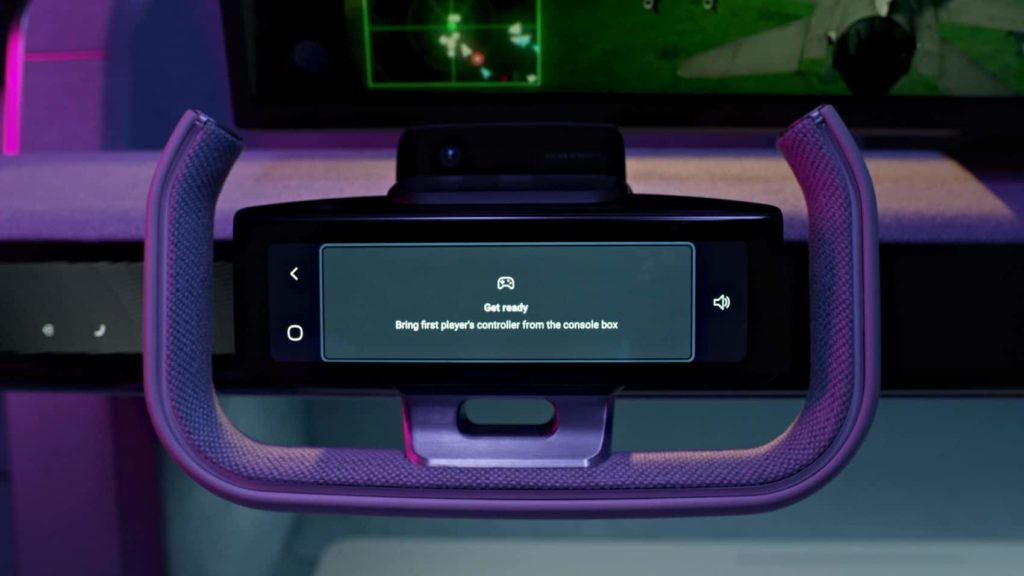
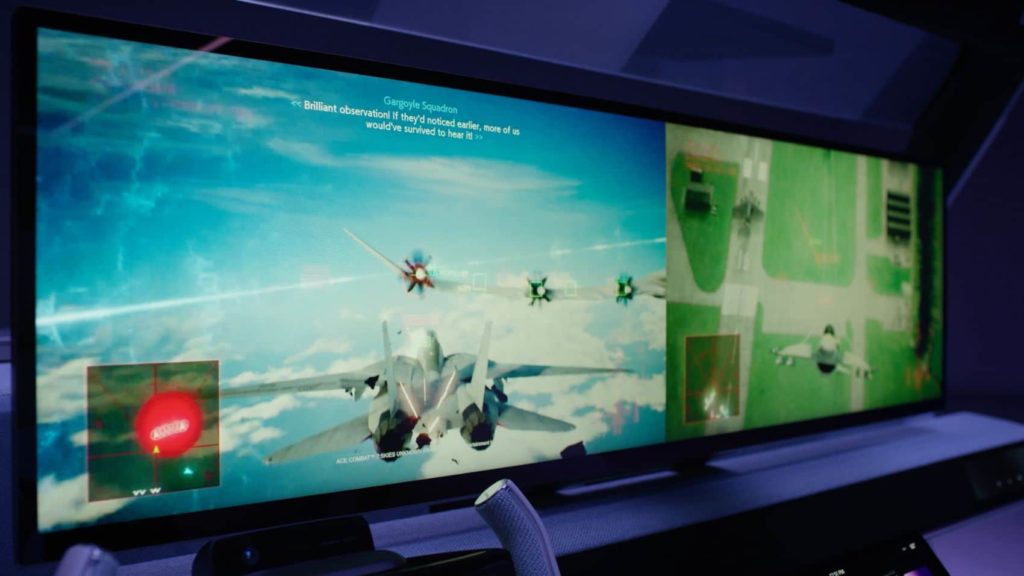
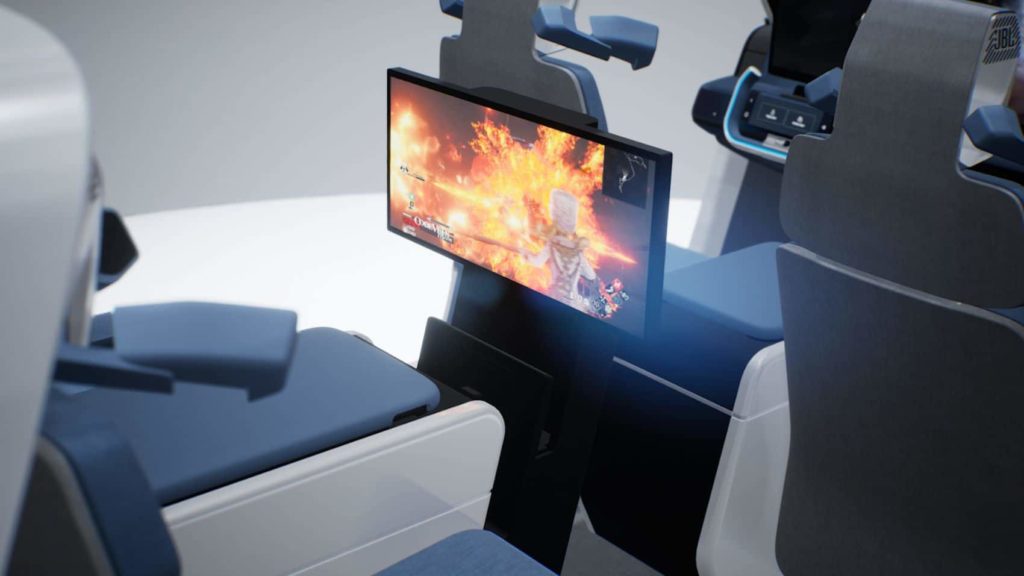
Future Mobility Consortium
HARMAN and SBD Automotive formed the Experiences Per Mile Advisory Council to study, gauge, and ultimately capitalize on what some might consider this radical transformation of traditional mobility. The council consists of automotive executives, analysts, and industry insiders who are seeking to “foster cross-industry innovation to define and improve the in-vehicle experience for consumers.” According to the council, both automotive and non-automotive companies alike need to consider how important the idea of a connected vehicle is for future generations. The council advocates that companies embrace this future by adapting their mindset and developing new innovations that cater to an ever-changing market.
“What differentiates HARMAN from others is that we leverage our deep understanding of consumer needs and in-vehicle preferences, while also doubling down on HARMAN’s experience-driven approach instead of focusing solely on individual technologies,” Sobottka said. “OEMs will benefit from advanced personalization and technological synergies, while drivers will enjoy a connected experience built purposefully for their needs.”
Defining Experiences Per Mile?
For me and many others who read Automoblog, our experience with cars is probably defined the old-fashioned way. As a Detroiter, I like seeing all the classic muscle cars that line Woodward Avenue on a Saturday night during the summer. I love the raw sound of a 6.4-liter Hemi (Dodge Charger or Challenger) and the unmistakable whine of a supercharger nestled under the hood of a Shelby Mustang. I appreciate something like the Subaru BRZ and Mazda Miata on a twisty road. I also love trucks with oversized tires!
HARMAN and its industry partners believe future generations will define their vehicles differently. The “experience” for us older car guys is the sound of the exhaust, the roar of the engine, and the feel of the steering wheel, but for future generations, that may not be the case. The “experiences per mile” future car buyers want will be more on the tech and connectivity side, even up to the point where cars become personal studios.
The hard thing for me is knowing people on both sides of the fence (as it were). Some tell me they are all about this future tech stuff and unequivocally want their car to have all of it. Others tell me they want safety and good fuel mileage; beyond that, a car is simply a means of getting around.
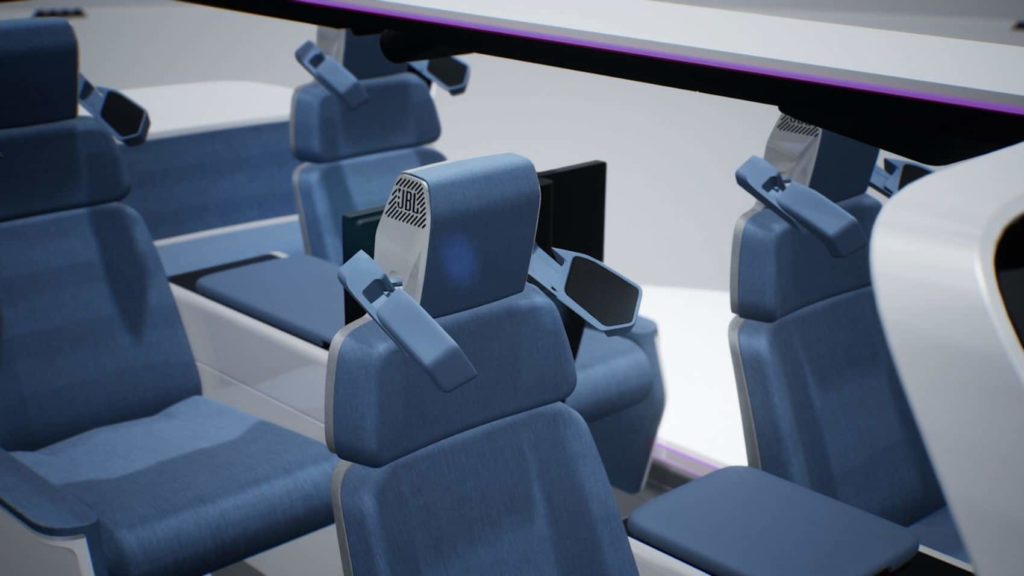
Neither Agree, Nor Disagree
The HARMAN Explore 2021 event started with a message from Michael Mauser, President and CEO of HARMAN, which set the tone for where the company is going. From there, other company leaders explain the basis of the Experiences Per Mile Advisory Council before diving deeper into the vehicle as a personal and creative studio.
At this point, I don’t know that I agree with the Experiences Per Mile Advisory Council – but I don’t exactly disagree either. Indeed, they are probably right in their assessment that future generations will measure a car’s value differently. Yet, if that value derives from the inclusion of more interior connectivity technology, the likelihood of a more expensive vehicle is almost inevitable. And what younger person, fresh out of college with a mountain of debt and already worried about their healthcare and rent, could afford such a car?
After watching the Explore event, I think it’s too early to tell what future consumers will want and how they will truly measure a car’s value. Without starting another conversation (and debate!), it will hinge on how much future generations can afford. Since cars are never an asset (i.e. they always depreciate), it will come down to how much money future consumers feel they can reasonably part with to satisfy their daily transportation requirements. That and that alone is likely to be the key to how they measure a car’s value.
If future generations have more buying power, then yes, they are apt to judge their in-vehicle experiences differently. They are more likely to desire a refined sensory experience (however that is defined for them), just as a Bentley buyer is seeking (and paying for) a different sensory experience than a Honda buyer.
If, however, members of a future generation are saddled with college and healthcare debt, it’s reasonable to imagine they will consider their “experiences per mile” in terms of reliability and fuel economy. Their car having heated seats, Bluetooth, and Apple CarPlay and Android Auto will be a nice, and perhaps unexpected, bonus.
Diving Deeper & Learning More
While the viewpoint outlined above is mine, it’s important to note that it’s not Gospel truth. It’s just my vantage point based on my work and experiences in the automotive industry. But vantage points differ, and the Experiences Per Mile Advisory Council is viewing things through a different lens than I am. As I go forward in this business, I am excited to learn and see new things, and the HARMAN Explore event was a perfect opportunity to do so.
If you want to read more, I suggest downloading the council’s latest report on measuring mobility experiences. I read it at the end of 2020 and found it interesting. As I did, there are things you may immediately agree with and things you may not, but it’s an informative read nonetheless.


